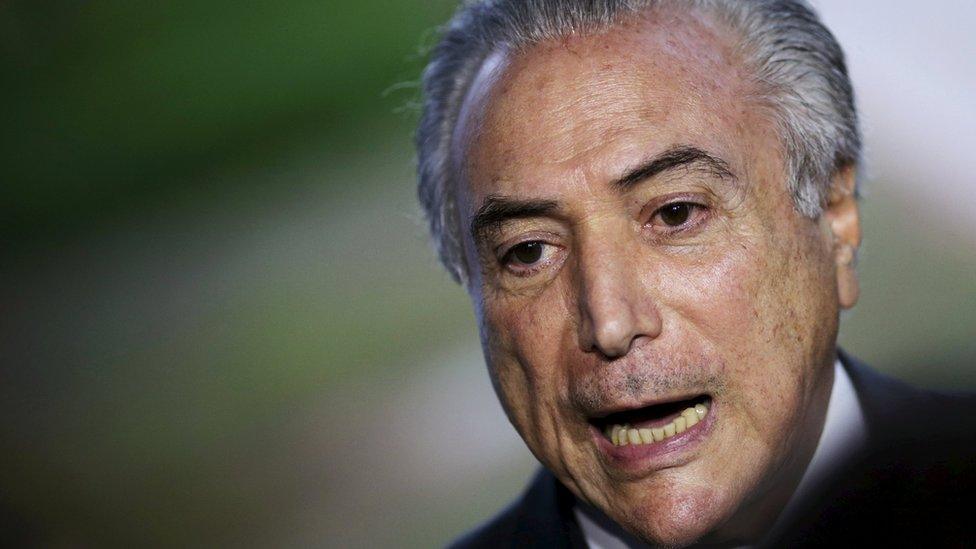Brazil impeachment: Dilma Rousseff's last stand?
- Published
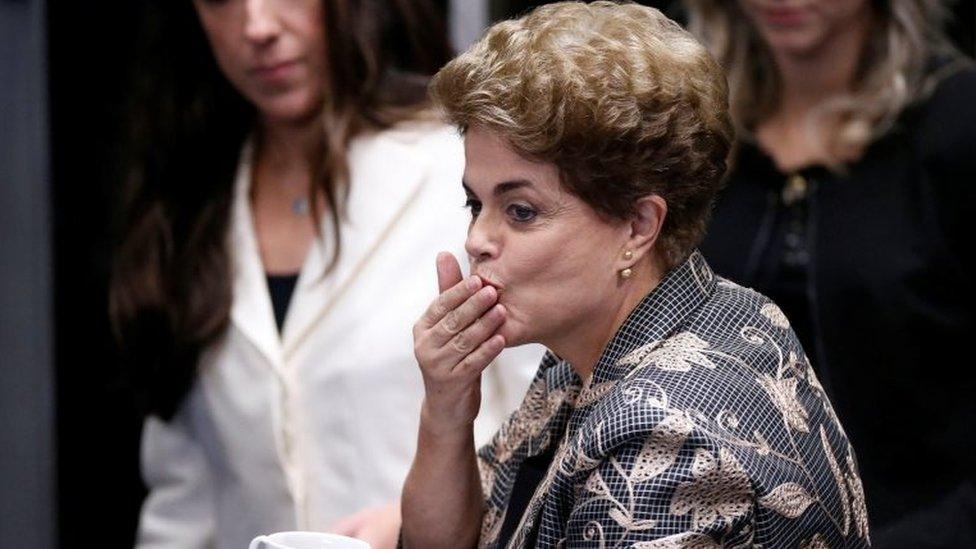
Ms Rousseff said her opponents were orchestrating a coup against her
It was another marathon session in Brazil's congress.
There was heated debate over the impeachment of Dilma Rousseff, this time with the suspended president herself at the centre of the questioning, giving answers to more than 50 senators one by one.
It was an unprecedented moment in Brazilian history, the final episode in a trial expected to end with her permanent removal from office.
Gruelling questioning
Ms Rousseff is accused of breaking budget laws, but the case has a much more complex background.
Brazil is currently going through its worst economic crisis in decades, with the economy in recession after years of promising growth.
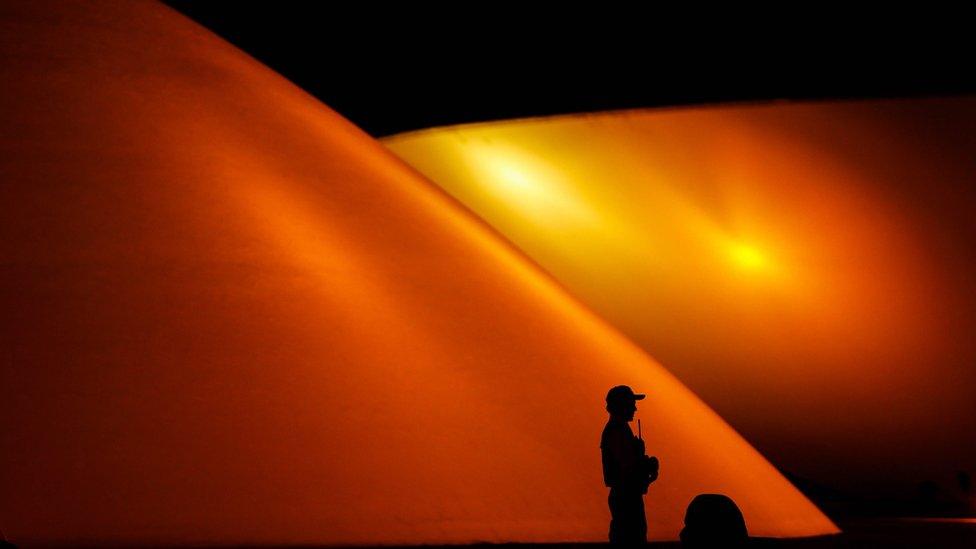
Security was tight at the National Congress in Brasilia, as Ms Rousseff spoke
During Ms Rousseff's second term, the country has seen the public deficit, inflation and unemployment soar and has lost its hard-earned investment-grade credit rating.
Corruption allegations have tainted Ms Rousseff Workers' Party, fuelling animosity towards her and her mentor and predecessor in office, Luiz Inacio Lula da Silva.
At Monday's session, senators blamed her for the tanking economy and accused her of concealing the growing fiscal deficit as she sought re-election.
They also questioned how she could not have been aware of the corruption at state-run oil giant Petrobras, when for years she chaired its board of directors.
The revelations about corruption at Petrobras, in which members of Ms Rousseff's Workers' Party as well as business executives and influential members of other parties have been implicated, have played a crucial role in undermining the government's credibility.
End of an era?
Ms Rousseff could have had her lawyers represent her at Monday's session, but she decided to defend herself, a decision that may have been more about leaving her mark on history than trying to change senators' minds.
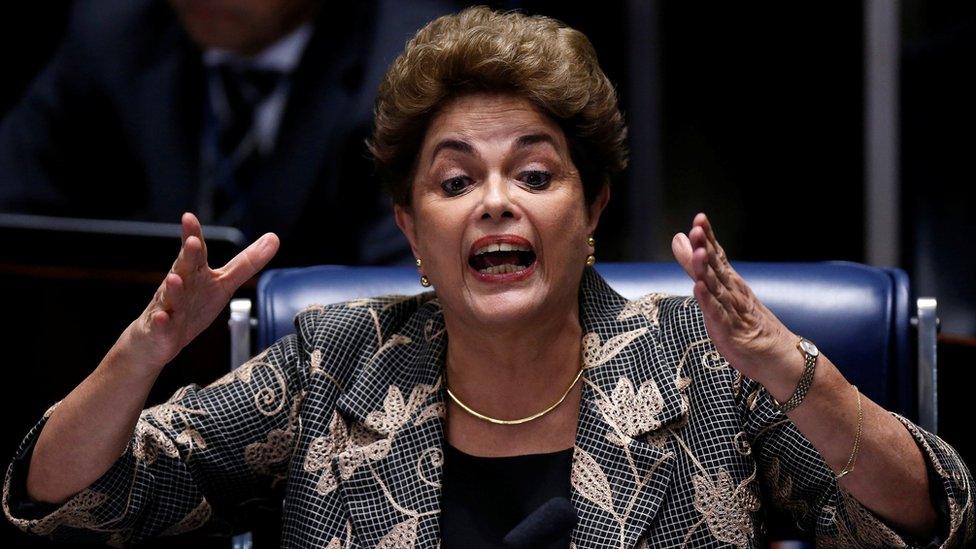
Ms Rousseff decided to defend herself rather than send one of her lawyers
Depending on the outcome of the impeachment vote, her appearance in the senate may prove to have been her last stand and spell the end of 13 years in power by the Workers' Party.
Addressing her "beloved Brazil", she insisted the allegations against her were a pretext to remove her from office.
She said she was being judged for the acts of her government in general, not the specific illegal acts of which she stands accused.
She also said while the impeachment trial could not be compared to the military coup of 1964 - following which she was imprisoned and tortured - it would nevertheless inflict a lasting wound on the country.
Senators should examine their conscience before deciding how to vote, she said.
Her defence included strong words and harsh accusations, but she maintained a respectful tone throughout.
This was in contrast to the exchanges during earlier stages of the impeachment trial, which led Speaker Renan Calheiros to describe the senate as "a madhouse".
Temer's turn?
The 81 senators will cast their votes after another long round of speeches on Tuesday, expected to last up to 15 hours.
By Wednesday at the latest, Ms Rousseff's fate should be clear.
If two-thirds of the senators vote in favour of her impeachment, Ms Rousseff will be formally removed from the presidency and barred from holding office for eight years.
In that case, interim President Michel Temer, her former ally and vice-president, will be officially made head of state until 2018.
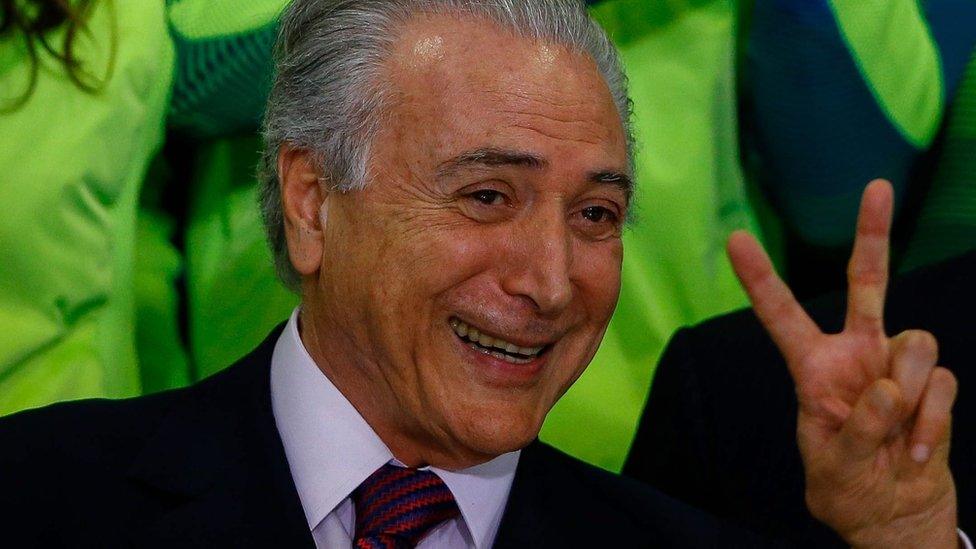
Michel Temer was having his picture taken with Olympic athletes on Monday
Mr Temer's government seems so confident of the outcome it has made plans for a swift inauguration to allow him to attend the G20 summit starting in China on 4 September.
As Ms Rousseff presented her defence, Mr Temer was next door in the presidential palace welcoming Brazil's Olympic athletes and posing for pictures.
His supporters say he has the political ability to build alliances and put the economy back on track.
His detractors fear they will get a conservative government and austerity measures most of the population did not vote for.
With the investigation into corruption at Petrobras continuing and Brazil's political system deeply discredited, the dust in Brasilia seems far from settling, and political stability appears a remote prospect.
- Published10 August 2016
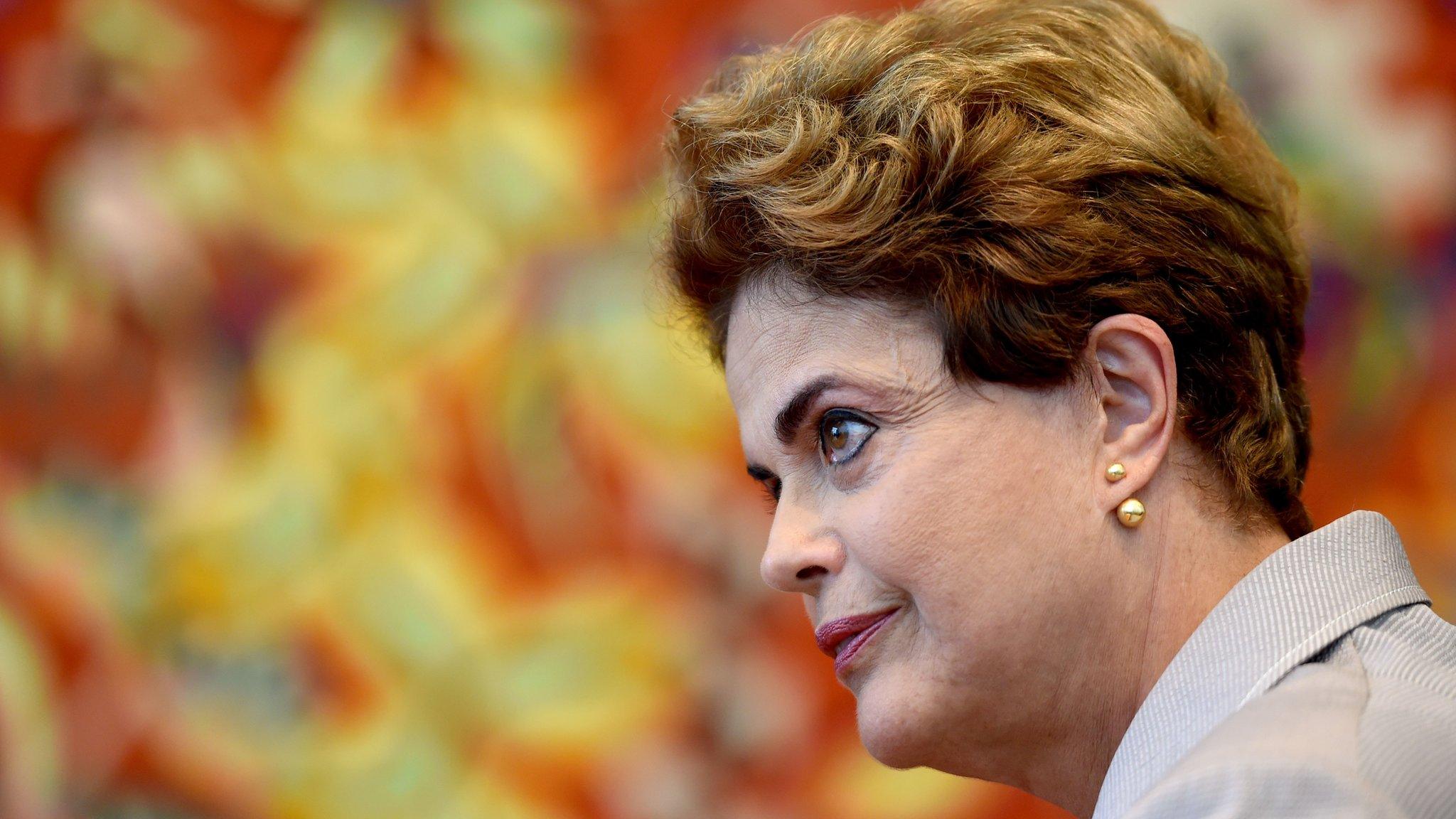
- Published12 May 2016
